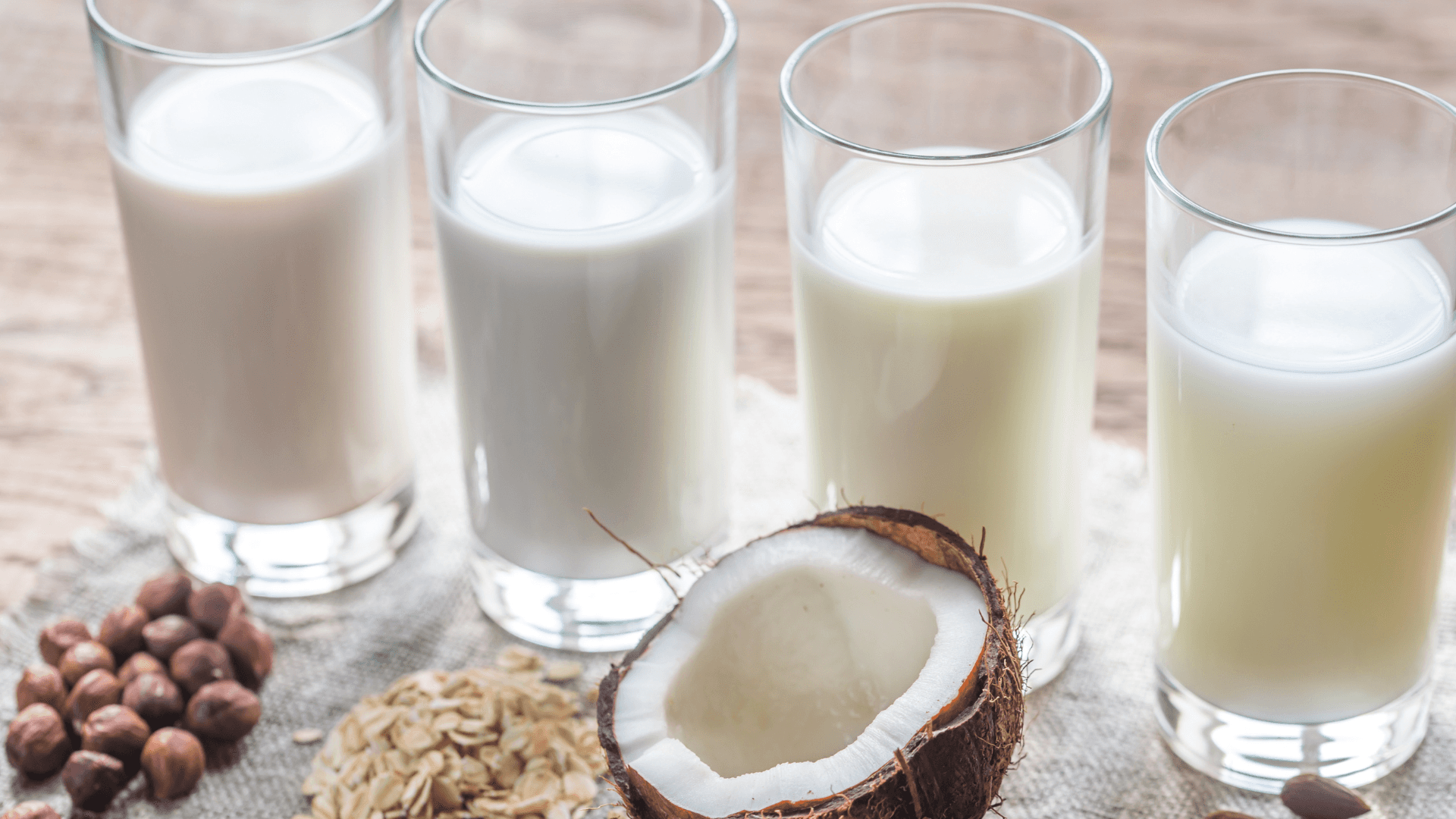Superfoods: Discover the Nutritional Power and Health Benefits
Superfoods: Discover the Nutritional Power and Health Benefits
Superfoods: Discover the Nutritional Power and Health Benefits
Apr 3, 2024
Apr 3, 2024
Apr 3, 2024

Discover the benefits of superfoods for your health and how they can enhance your diet.
Discover the benefits of superfoods for your health and how they can enhance your diet.
Discover the benefits of superfoods for your health and how they can enhance your diet.
The term "superfoods" has become prominent in discussions about nutrition and health. They are known for being nutrient-dense and containing bioactive compounds that can provide various health benefits. This article explores some of the most well-known superfoods and what they can do for you.
What Are Superfoods?
Superfoods are nutrient-rich foods that offer health benefits exceeding their caloric content, generally full of essential nutrients, vitamins, minerals, antioxidants, and fibers.
Notable examples of superfoods include:
Acai berries: Native to the Amazon region, this fruit is full of antioxidants, promotes heart health, and reduces inflammation.
Quinoa: A gluten-free whole grain high in protein, fiber, and iron.
Chia: Seeds rich in omega-3, fiber, and protein, which promote satiety and digestive health.
Kale: A leafy green vegetable loaded with vitamins A, C, and K, as well as antioxidants.
Goji berries: Rich in antioxidants, amino acids, vitamins, and minerals, which support the immune system and eye health.
Superfoods can also be abundant sources of:
Healthy fats: Mono-unsaturated and poly-unsaturated fats, known as "healthy fats," help reduce cholesterol and prevent heart diseases and strokes. Examples of superfoods rich in healthy fats include avocados, nuts, and seeds.
Fiber: Fiber is essential for blood glucose control in people with type 2 diabetes, and it also helps reduce cholesterol and the risk of heart disease. Examples of fiber-rich superfoods include oats, beans, and berries.
Flavonoids: Flavonoids are a group of plant compounds with anti-inflammatory and anticancer properties. They are in many superfoods like citrus fruits, green tea, and cocoa.
Health Benefits of Superfoods for Overall Health
Besides the benefits already mentioned, superfoods influence digestive health due to their high fiber content. Chia seeds and oatmeal, for example, aid in regulating bowel movements, promoting a healthy microbiome, efficient digestion, nutrient absorption, and toxin elimination.
Also, superfoods (such as ginger, turmeric, and omega-3-rich fish) are valued for their anti-inflammatory properties, helping to combat systemic inflammation that can result in heart disease, arthritis, Alzheimer's, and other chronic diseases.
Finally, superfoods like broccoli, spinach, and citrus fruits are abundant in vitamins C and E, and antioxidants like flavonoids and carotenoids that neutralize free radicals. These unstable molecules are known to cause oxidative stress, linked to premature aging, cancer development, neurodegenerative disorders, and other adverse health conditions.
Superfoods and Weight Loss: Allies in the Diet
Superfoods often have low glycemic indexes, which help maintain blood sugar levels and prevent insulin spikes that result in body fat storage. That is important for stabilizing blood sugar levels and preventing overeating, which is common in diets high in simple carbs.
Another benefit of superfoods in weight loss is the presence of specific nutrients that can boost metabolism. For instance, cayenne pepper has thermogenic properties that facilitate burning excessive fats in the body, generating enough heat to stimulate blood circulation and eliminate toxins. Additionally, cayenne pepper helps regulate blood pressure and levels of LDL cholesterol and triglycerides.
Therefore, integrating superfoods into the diet contributes to healthy weight reduction and provides a rich source of vitamins, minerals, and antioxidants that support overall health during weight loss. When combined with a balanced diet and regular physical activity, this effect can significantly enhance the efficacy of the process.
How to Incorporate Superfoods Into Your Daily Diet
You can easily integrate superfoods into your daily diet with some simple
and creative changes. These adjustments allow you to enrich your meals with more nutrients without needing to rearrange your eating routine completely:
Smoothies and beverages: Enhance your smoothies by adding chia seeds or spirulina, which offer an excellent source of proteins and antioxidants. These ingredients are flavor-neutral but significantly elevate the nutritional value of your drinks.
Smart substitutions: For a protein and fiber boost, swap rice with quinoa in hot dishes. As a complete grain, quinoa helps maintain satiety.
Salads and soups: Include kale or spinach in salads and soups. Full of vitamins and minerals, these green vegetables effortlessly improve the nutritional profile of simple dishes.
Snacks and desserts:
Replace processed snacks with natural options like nuts and seeds, which are nutrient-rich and help maintain satiety.
Add goji berries to your morning oatmeal or yogurt for an antioxidant boost.
Enjoy a dark chocolate piece as a dessert to take advantage of its minerals and flavonoids without overloading your caloric intake.
Herbs and spices: Use herbs and spices like turmeric and ginger in preparations whenever possible. Beyond enhancing flavors, these spices bring anti-inflammatory and antioxidant benefits.
__
Superfoods are valuable additions to a balanced diet, offering nutrient-dense benefits that can significantly improve health. However, it is best to remember that superfoods are not a replacement for medical treatments, as they should only be part of a healthy lifestyle.
The term "superfoods" has become prominent in discussions about nutrition and health. They are known for being nutrient-dense and containing bioactive compounds that can provide various health benefits. This article explores some of the most well-known superfoods and what they can do for you.
What Are Superfoods?
Superfoods are nutrient-rich foods that offer health benefits exceeding their caloric content, generally full of essential nutrients, vitamins, minerals, antioxidants, and fibers.
Notable examples of superfoods include:
Acai berries: Native to the Amazon region, this fruit is full of antioxidants, promotes heart health, and reduces inflammation.
Quinoa: A gluten-free whole grain high in protein, fiber, and iron.
Chia: Seeds rich in omega-3, fiber, and protein, which promote satiety and digestive health.
Kale: A leafy green vegetable loaded with vitamins A, C, and K, as well as antioxidants.
Goji berries: Rich in antioxidants, amino acids, vitamins, and minerals, which support the immune system and eye health.
Superfoods can also be abundant sources of:
Healthy fats: Mono-unsaturated and poly-unsaturated fats, known as "healthy fats," help reduce cholesterol and prevent heart diseases and strokes. Examples of superfoods rich in healthy fats include avocados, nuts, and seeds.
Fiber: Fiber is essential for blood glucose control in people with type 2 diabetes, and it also helps reduce cholesterol and the risk of heart disease. Examples of fiber-rich superfoods include oats, beans, and berries.
Flavonoids: Flavonoids are a group of plant compounds with anti-inflammatory and anticancer properties. They are in many superfoods like citrus fruits, green tea, and cocoa.
Health Benefits of Superfoods for Overall Health
Besides the benefits already mentioned, superfoods influence digestive health due to their high fiber content. Chia seeds and oatmeal, for example, aid in regulating bowel movements, promoting a healthy microbiome, efficient digestion, nutrient absorption, and toxin elimination.
Also, superfoods (such as ginger, turmeric, and omega-3-rich fish) are valued for their anti-inflammatory properties, helping to combat systemic inflammation that can result in heart disease, arthritis, Alzheimer's, and other chronic diseases.
Finally, superfoods like broccoli, spinach, and citrus fruits are abundant in vitamins C and E, and antioxidants like flavonoids and carotenoids that neutralize free radicals. These unstable molecules are known to cause oxidative stress, linked to premature aging, cancer development, neurodegenerative disorders, and other adverse health conditions.
Superfoods and Weight Loss: Allies in the Diet
Superfoods often have low glycemic indexes, which help maintain blood sugar levels and prevent insulin spikes that result in body fat storage. That is important for stabilizing blood sugar levels and preventing overeating, which is common in diets high in simple carbs.
Another benefit of superfoods in weight loss is the presence of specific nutrients that can boost metabolism. For instance, cayenne pepper has thermogenic properties that facilitate burning excessive fats in the body, generating enough heat to stimulate blood circulation and eliminate toxins. Additionally, cayenne pepper helps regulate blood pressure and levels of LDL cholesterol and triglycerides.
Therefore, integrating superfoods into the diet contributes to healthy weight reduction and provides a rich source of vitamins, minerals, and antioxidants that support overall health during weight loss. When combined with a balanced diet and regular physical activity, this effect can significantly enhance the efficacy of the process.
How to Incorporate Superfoods Into Your Daily Diet
You can easily integrate superfoods into your daily diet with some simple
and creative changes. These adjustments allow you to enrich your meals with more nutrients without needing to rearrange your eating routine completely:
Smoothies and beverages: Enhance your smoothies by adding chia seeds or spirulina, which offer an excellent source of proteins and antioxidants. These ingredients are flavor-neutral but significantly elevate the nutritional value of your drinks.
Smart substitutions: For a protein and fiber boost, swap rice with quinoa in hot dishes. As a complete grain, quinoa helps maintain satiety.
Salads and soups: Include kale or spinach in salads and soups. Full of vitamins and minerals, these green vegetables effortlessly improve the nutritional profile of simple dishes.
Snacks and desserts:
Replace processed snacks with natural options like nuts and seeds, which are nutrient-rich and help maintain satiety.
Add goji berries to your morning oatmeal or yogurt for an antioxidant boost.
Enjoy a dark chocolate piece as a dessert to take advantage of its minerals and flavonoids without overloading your caloric intake.
Herbs and spices: Use herbs and spices like turmeric and ginger in preparations whenever possible. Beyond enhancing flavors, these spices bring anti-inflammatory and antioxidant benefits.
__
Superfoods are valuable additions to a balanced diet, offering nutrient-dense benefits that can significantly improve health. However, it is best to remember that superfoods are not a replacement for medical treatments, as they should only be part of a healthy lifestyle.
The term "superfoods" has become prominent in discussions about nutrition and health. They are known for being nutrient-dense and containing bioactive compounds that can provide various health benefits. This article explores some of the most well-known superfoods and what they can do for you.
What Are Superfoods?
Superfoods are nutrient-rich foods that offer health benefits exceeding their caloric content, generally full of essential nutrients, vitamins, minerals, antioxidants, and fibers.
Notable examples of superfoods include:
Acai berries: Native to the Amazon region, this fruit is full of antioxidants, promotes heart health, and reduces inflammation.
Quinoa: A gluten-free whole grain high in protein, fiber, and iron.
Chia: Seeds rich in omega-3, fiber, and protein, which promote satiety and digestive health.
Kale: A leafy green vegetable loaded with vitamins A, C, and K, as well as antioxidants.
Goji berries: Rich in antioxidants, amino acids, vitamins, and minerals, which support the immune system and eye health.
Superfoods can also be abundant sources of:
Healthy fats: Mono-unsaturated and poly-unsaturated fats, known as "healthy fats," help reduce cholesterol and prevent heart diseases and strokes. Examples of superfoods rich in healthy fats include avocados, nuts, and seeds.
Fiber: Fiber is essential for blood glucose control in people with type 2 diabetes, and it also helps reduce cholesterol and the risk of heart disease. Examples of fiber-rich superfoods include oats, beans, and berries.
Flavonoids: Flavonoids are a group of plant compounds with anti-inflammatory and anticancer properties. They are in many superfoods like citrus fruits, green tea, and cocoa.
Health Benefits of Superfoods for Overall Health
Besides the benefits already mentioned, superfoods influence digestive health due to their high fiber content. Chia seeds and oatmeal, for example, aid in regulating bowel movements, promoting a healthy microbiome, efficient digestion, nutrient absorption, and toxin elimination.
Also, superfoods (such as ginger, turmeric, and omega-3-rich fish) are valued for their anti-inflammatory properties, helping to combat systemic inflammation that can result in heart disease, arthritis, Alzheimer's, and other chronic diseases.
Finally, superfoods like broccoli, spinach, and citrus fruits are abundant in vitamins C and E, and antioxidants like flavonoids and carotenoids that neutralize free radicals. These unstable molecules are known to cause oxidative stress, linked to premature aging, cancer development, neurodegenerative disorders, and other adverse health conditions.
Superfoods and Weight Loss: Allies in the Diet
Superfoods often have low glycemic indexes, which help maintain blood sugar levels and prevent insulin spikes that result in body fat storage. That is important for stabilizing blood sugar levels and preventing overeating, which is common in diets high in simple carbs.
Another benefit of superfoods in weight loss is the presence of specific nutrients that can boost metabolism. For instance, cayenne pepper has thermogenic properties that facilitate burning excessive fats in the body, generating enough heat to stimulate blood circulation and eliminate toxins. Additionally, cayenne pepper helps regulate blood pressure and levels of LDL cholesterol and triglycerides.
Therefore, integrating superfoods into the diet contributes to healthy weight reduction and provides a rich source of vitamins, minerals, and antioxidants that support overall health during weight loss. When combined with a balanced diet and regular physical activity, this effect can significantly enhance the efficacy of the process.
How to Incorporate Superfoods Into Your Daily Diet
You can easily integrate superfoods into your daily diet with some simple
and creative changes. These adjustments allow you to enrich your meals with more nutrients without needing to rearrange your eating routine completely:
Smoothies and beverages: Enhance your smoothies by adding chia seeds or spirulina, which offer an excellent source of proteins and antioxidants. These ingredients are flavor-neutral but significantly elevate the nutritional value of your drinks.
Smart substitutions: For a protein and fiber boost, swap rice with quinoa in hot dishes. As a complete grain, quinoa helps maintain satiety.
Salads and soups: Include kale or spinach in salads and soups. Full of vitamins and minerals, these green vegetables effortlessly improve the nutritional profile of simple dishes.
Snacks and desserts:
Replace processed snacks with natural options like nuts and seeds, which are nutrient-rich and help maintain satiety.
Add goji berries to your morning oatmeal or yogurt for an antioxidant boost.
Enjoy a dark chocolate piece as a dessert to take advantage of its minerals and flavonoids without overloading your caloric intake.
Herbs and spices: Use herbs and spices like turmeric and ginger in preparations whenever possible. Beyond enhancing flavors, these spices bring anti-inflammatory and antioxidant benefits.
__
Superfoods are valuable additions to a balanced diet, offering nutrient-dense benefits that can significantly improve health. However, it is best to remember that superfoods are not a replacement for medical treatments, as they should only be part of a healthy lifestyle.
Compartilhar em:
Compartilhar em:

Civilizações perdidas: mistérios do passado
Jan 31, 2025

Histórias ocultas dos monumentos mais famosos do mundo
Jan 15, 2024

Os efeitos das viagens espaciais no corpo humano
Dec 2, 2024

O impacto das redes sociais nas tradições de Ano Novo
Nov 28, 2024

Ano Novo: costumes, reflexões e caminhos para uma celebração sustentável
Nov 28, 2024

Astronomia e Natal: desvendando a Estrela de Belém e os Fenómenos Celestes
Oct 27, 2024

Sabores e tradições do Natal global
Nov 27, 2024

Mindful Eating: transforme sua relação com a comida através da alimentação consciente
Apr 8, 2024

Abacate: uma fruta repleta de benefícios para a sua saúde
Apr 11, 2024

Explorando os diferentes tipos de leite
Apr 8, 2024

Chá verde: uma fonte natural de saúde e vitalidade
Apr 5, 2024

Superalimentos: descubra o poder nutricional e os benefícios para a saúde
Apr 3, 2024

Alimentos anticancerígenos: descubra como reduzir o risco de câncer através da dieta
Mar 29, 2024

Os efeitos do açúcar no corpo
Mar 27, 2024

Os perigos do uso frequente de laxantes: o que deve saber
Mar 25, 2024
Ver Também
Ver Também
Ver Também
Ver Também

Civilizações perdidas: mistérios do passado
Jan 31, 2025

Histórias ocultas dos monumentos mais famosos do mundo
Jan 15, 2024

Os efeitos das viagens espaciais no corpo humano
Dec 2, 2024

O impacto das redes sociais nas tradições de Ano Novo
Nov 28, 2024

Ano Novo: costumes, reflexões e caminhos para uma celebração sustentável
Nov 28, 2024

Astronomia e Natal: desvendando a Estrela de Belém e os Fenómenos Celestes
Oct 27, 2024

Sabores e tradições do Natal global
Nov 27, 2024

Mindful Eating: transforme sua relação com a comida através da alimentação consciente
Apr 8, 2024

Abacate: uma fruta repleta de benefícios para a sua saúde
Apr 11, 2024

Explorando os diferentes tipos de leite
Apr 8, 2024

Chá verde: uma fonte natural de saúde e vitalidade
Apr 5, 2024

Superalimentos: descubra o poder nutricional e os benefícios para a saúde
Apr 3, 2024

Alimentos anticancerígenos: descubra como reduzir o risco de câncer através da dieta
Mar 29, 2024

Os efeitos do açúcar no corpo
Mar 27, 2024

Os perigos do uso frequente de laxantes: o que deve saber
Mar 25, 2024

